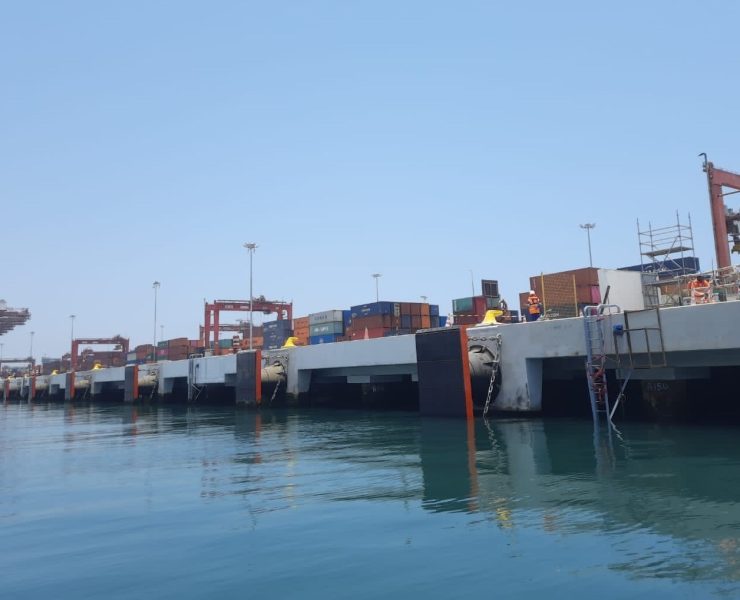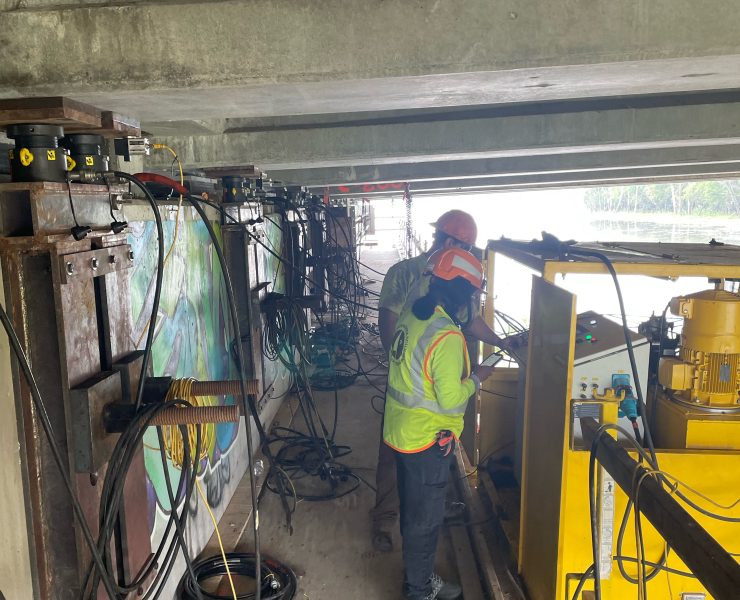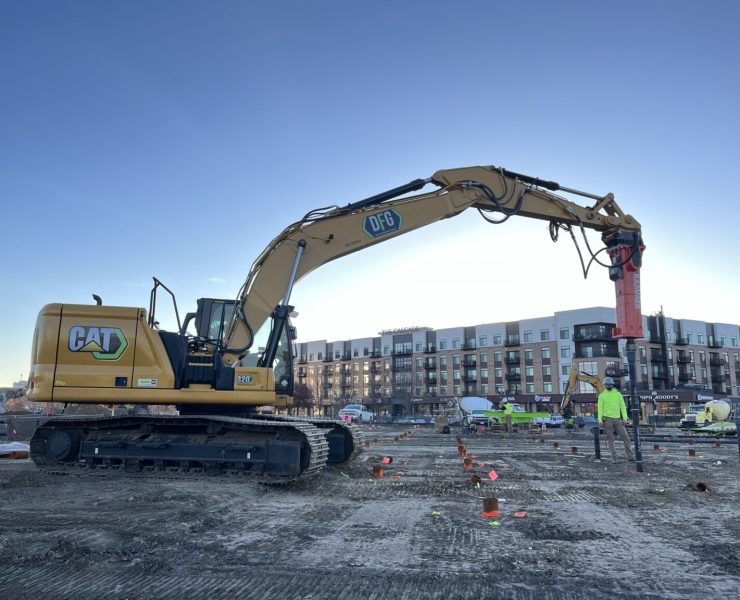Strengthening Solution For Boeing Secondary Levee
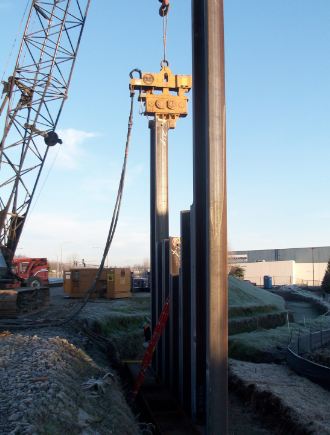

Levee/Floodwall Strengthening – Kent, Washington
History
In 2006, the Federal Emergency Management Agency (FEMA) decertified all levees in Kent, Washington along the Green River, a 65-mile long waterway that starts in Mount Rainier National Park and empties into the Puget Sound south of Seattle.
The Green River Levee System, originally built in the 1950s to protect the Kent Valley agricultural, commercial and residential interests from flooding, was constructed by farmers using crane and dragline methods to place fill. Because of these design and construction shortcomings, the levees did not always perform as intended and were in need of frequent repairs.
One of the weaker parts of the levee was at Three Friends Fishing Hole Park, a one-mile stretch located on the east side of the Green River near the historic Boeing defense plant.
 Problem
Problem
An inventory by the county showed the levees were unstable and at risk of failing in a major storm, prompting the Army Corps of Engineers to deem the levees deficient and declare the surrounding area as floodplain. The discovery required regional property owners to purchase costly flood insurance. City development, growth and expansion plans were negatively impacted.
Geotechnical investigations revealed a loose to dense mix of sand, gravel and silt. Groundwater was observed 10 to 20 feet below existing grade. Areas along the levee at Three Friends Fishing Hole Park were washed out, showing significant signs of erosion and unstable slopes.
Solution
The City of Kent’s selection process considered bioengineering, geogrids, soil mixing, slurry walls and riprap toe buttressing. Nucor Skyline collaborated with AECOM engineering and the City of Kent in the design of an AZ steel sheet pile flood wall configuration. Built into the secondary earthen levee as an I-wall design with reinforced concrete artistic walls built atop steel sheets, the strengthening solution bolsters flood control and protects against erosion.
During the design stages, Skyline highlighted several advantages of using steel sheet pile in flood protection. The installation of 220 linear feet of earthen levee, and nearly 750 linear feet of AZ sheet pile using vibratory and press technology, was simple, environment-friendly and completed in approximately six months. The impermeable wall design, with options to incorporate additional height, acts as a barrier against burrowing rodents and cuts off embankment seepage.
The steel sheet pile met the City of Kent’s desire to provide long-term flood risk reduction for the 18,000 local jobs and area residents with a long-term goal of achieving 100-year FEMA certification. The certification was intended to keep flood insurance rates lower and open the area for new development.

Project Partners
Owner
City of Kent
Kent, Washington
Contractor
Quigg Brothers
Aberdeen, Washington
Engineer
AECOM (structural)
Seattle, Washington
Kleinfelder
Seattle, Washington
Product
350 tons of steel sheet pile:
AZ 38-700, AZ 28-700, AZ 12-770
(ASTM 572 Grade 50)

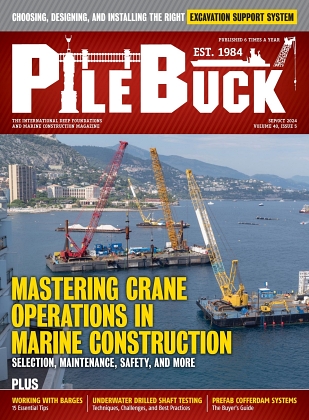
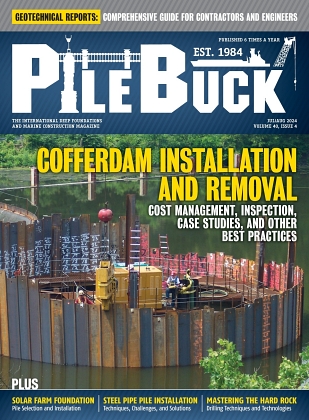
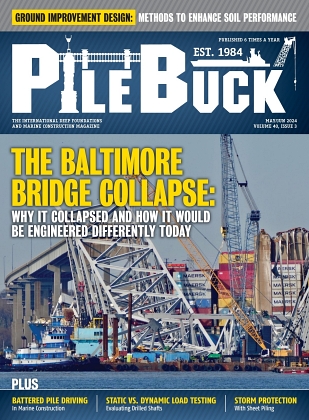
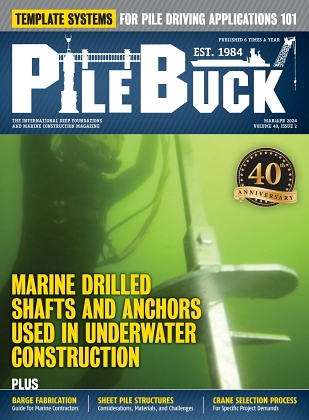
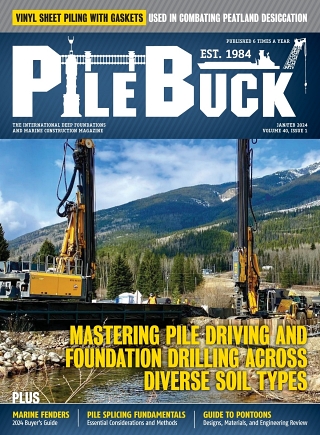

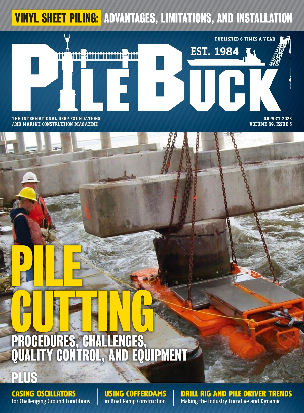
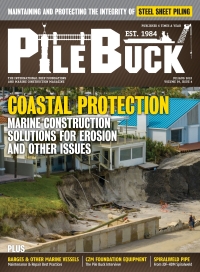
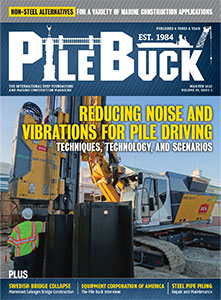

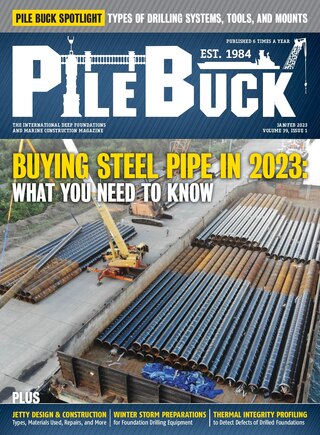
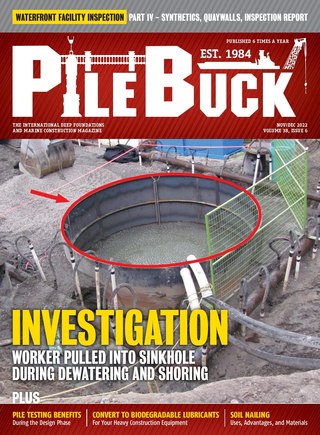

 Problem
Problem